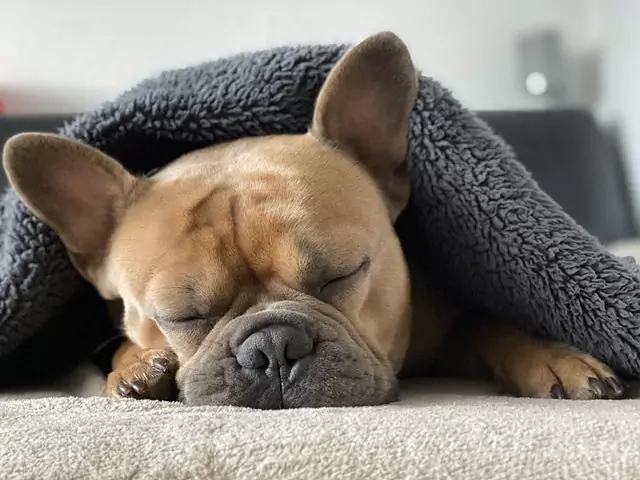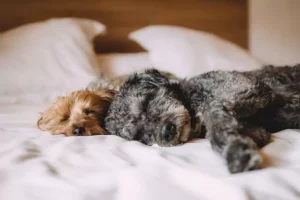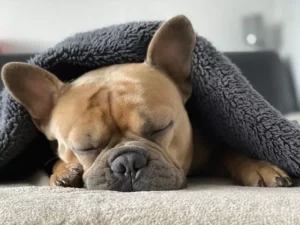0

Dogs enjoy napping. Although some dogs sleep more than others, dogs generally sleep for about 14 hours per day. Age, breed, and surroundings all have an impact on how much sleep a dog gets.
How Much Sleep Do Dogs Get Per Day?
Most dogs, on average, sleep for roughly half of the day, or around 12 hours in a 24-hour period. Small-breed dogs and working dogs may sleep less, whereas puppies, large-breed dogs, and senior dogs may sleep more.
Dogs will then spend an additional 30% of their awake time doing what I refer to as “loafing,” on top of the 50% of the day that they spend sleeping. Loafing is the same as when a human is awake but not actually accomplishing much—just hanging out. Loafing time is typically spent reclining down, taking it easy, and taking in the surroundings.
Therefore, that means that a whopping 80% of a dog’s day is spent doing absolutely nothing.

Dogs sleep more than do people. They go to bed when their bodies tell them to, as opposed to folks who have busy schedules and don’t always pay attention to their bodies cues.
For dogs, sleep is very important.
Our brains are electrically active throughout the day, and random, disordered material is stored in many locations. We do it while we sleep, and dogs do the same. Dogs really benefit from it, and if you stop them, they’ll start to lose it.
A dog’s immune system, as well as its brain growth, memory, and learning capacity benefit from sleep. Animals and people who lack sleep are more vulnerable to illnesses.
Many experts also believe that getting too little sleep may be a factor in your dog’s moodiness.
Furthermore, it stands to reason that larger breeds, pups, and senior dogs require even more sleep. Larger dogs just require more energy to move their bodies, and it takes longer for them to recuperate.
Young dogs sprint around, investigating everything and using a lot of energy. Then they collapse and sleep soundly.
In order to assist their bodies in recuperating from daily activity, older dogs also require extra sleep.
You shouldn’t be concerned if your dog is a champion snoozer like mine because sleeping is usually the main event in dogs’ everyday life. But if you establish a solid routine and your dog’s sleeping patterns alter, the first thing to do is to consult your veterinarian. Oversleeping can be an indication of diseases such as canine depression, diabetes, hypothyroidism, and potential hearing loss.
If a dog simply needs to go outside more frequently, you can create a new schedule and let them know when they are going out. The first step is to assess whether the issue is behavioral or medical.
When bored, they do indeed sleep.
However, that may not necessarily be a bad thing since kids might doze off after playtime. She believes you can take advantage of the fact that dogs tend to sleep when there is nothing else to do, especially if they have recently been busy. Make sure your dog gets the physical activity and mental stimulation before you leave if you have a dog that often misbehaves when left alone; otherwise, they may spend their alone time sleeping.
As part of their normal routine, dogs can often sleep (relax) for up to 18 hours every day. They are saving their energies for the following hunt. But dogs typically just rest extremely comfortably in one spot for 15 minutes to many hours before moving on to another spot and lying down once more.

A dog will occasionally fall asleep deeply, but more often than not, they only sleep lightly and awaken right away if anything odd happens. They occasionally bark, make other noises, or even “sleepwalk” while resting on their sides when they do fall asleep deeply.
It typically depends on the enjoyable things that the dog can think about at night. If you own two or more dogs, they might interact discreetly. If you have any mice in your house, a single dog might simply shift its toys around or try to listen for them. At night, they might peer out the window or listen at the front door. And when they eventually go back to their sleeping place, it will appear that they have been there all night.